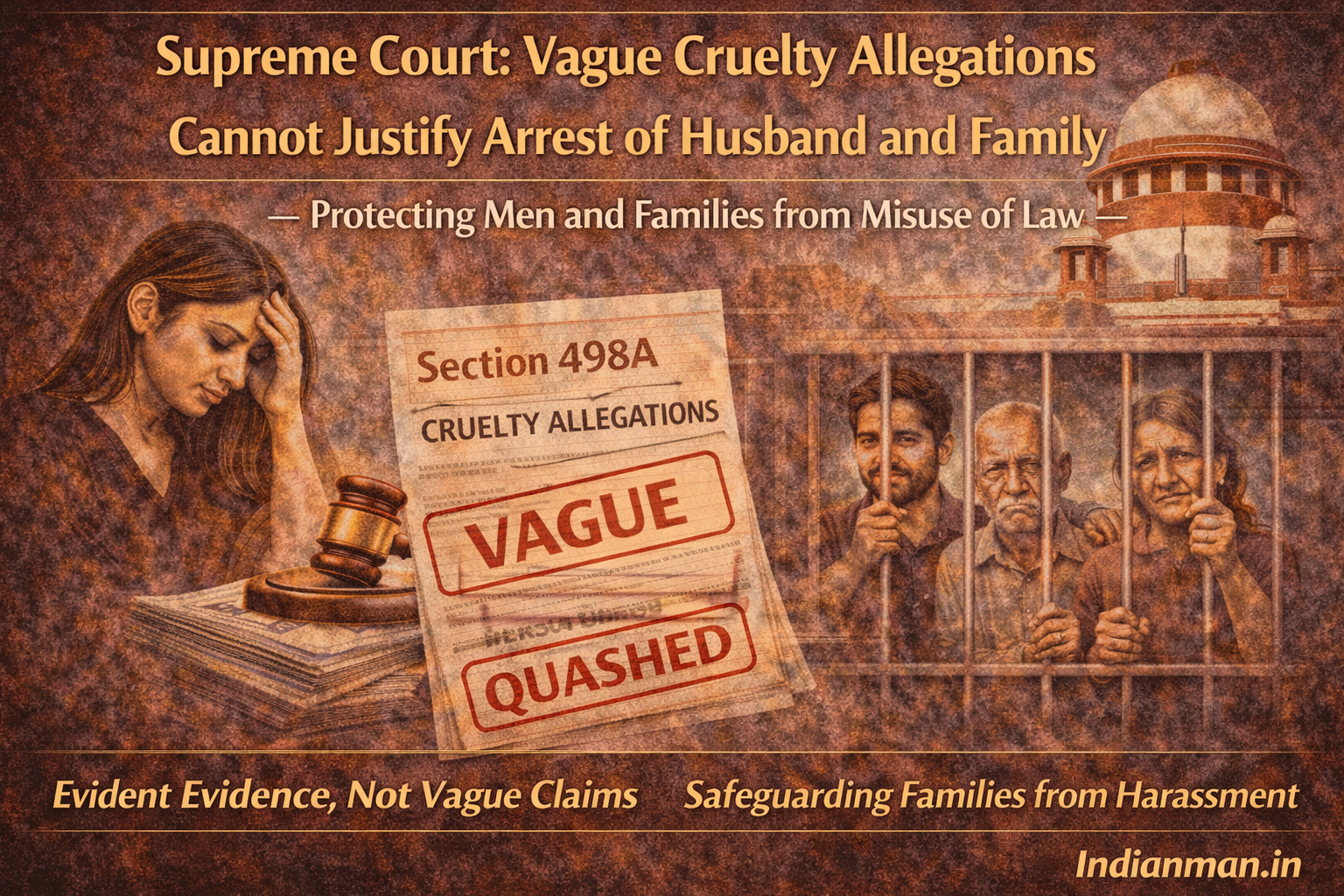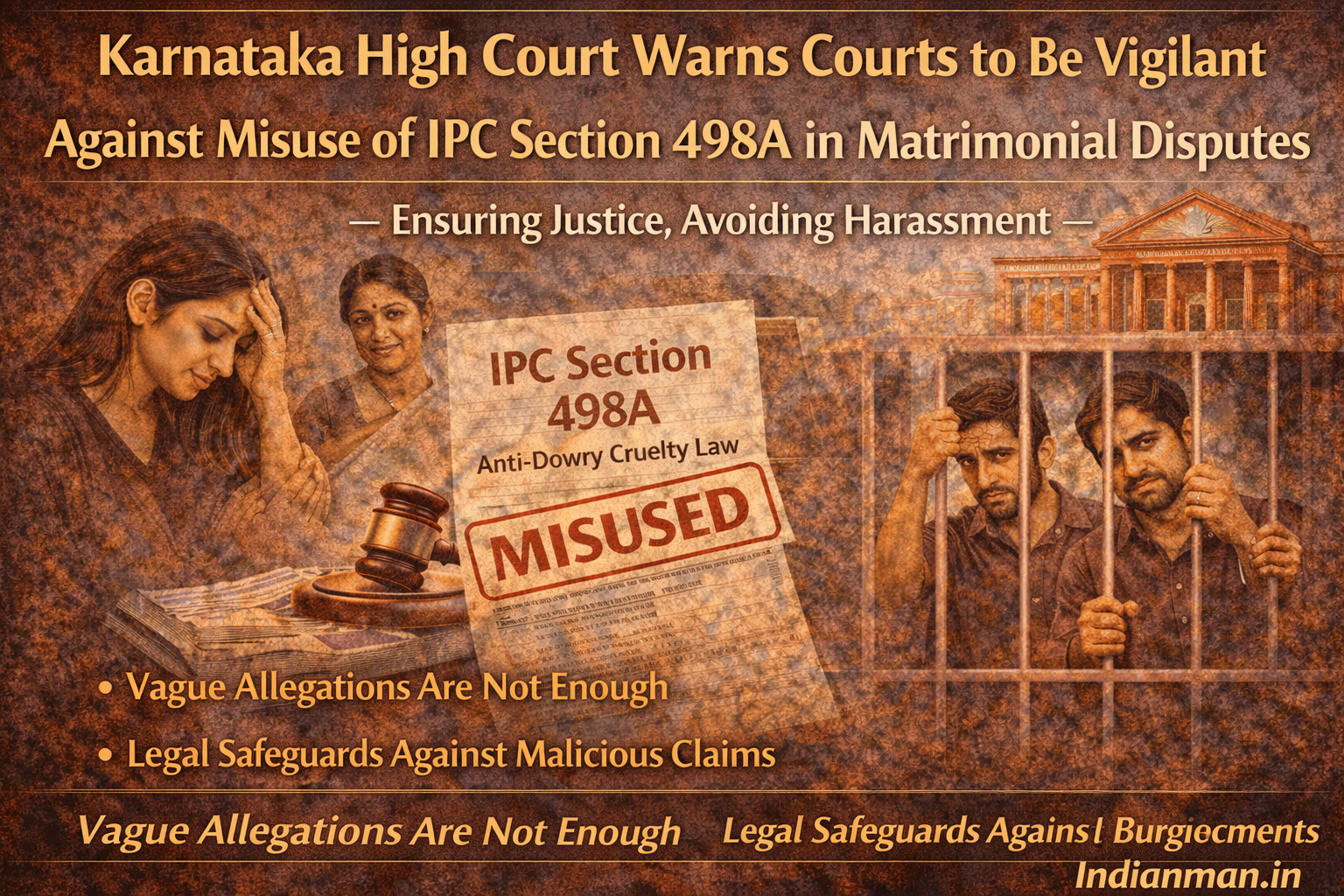The Madhya Pradesh High Court has ruled that family members cannot be held accountable in dowry cases if their active involvement is not proven. The court clarified that merely mentioning the names of family members in an FIR does not justify legal action against them.
Justice Rajendra Kumar Verma made this ruling while hearing a petition to quash an FIR registered under Section 498A and 323/34 of the Indian Penal Code (IPC), along with Sections 3/4 of the Dowry Prohibition Act, 1961. The petitioners, who were the parents of the woman’s husband, had requested that the case against them be dropped.
The case stemmed from allegations by the complainant, a woman who claimed her in-laws and husband harassed her for dowry, demanding ₹10 lakh. She accused them of constant harassment and pressure to get money from her parents.
The petitioner’s counsel, Mr. Deeptanshu Shukla, argued that the FIR lacked any concrete evidence to justify charges under Section 498A and 323 of IPC. He also pointed out that both parties’ parents had shared the marriage expenses equally, as stated in an affidavit.
Justice Verma observed that the complainant made general and baseless allegations against her in-laws, with no prior reports of harassment during her long stay with them. Notably, the allegations were filed five years after the marriage, raising doubts about their validity.
The court referred to the case of Geeta Mehrotra vs. State of U.P., where it was held that casually mentioning family members in an FIR, without proving their active role, does not warrant legal action. The court emphasized that such claims could lead to misuse of the judicial process.
Based on these observations, the High Court allowed the petition and quashed the proceedings against the in-laws.
Be a part our social media community:
Facebook: https://www.facebook.com/IndianMan.in?mibextid=ZbWKwL
Instagram:
https://www.instagram.com/indianman.in?igsh=MWZ2N3N0ZmpwM3l3cw==



